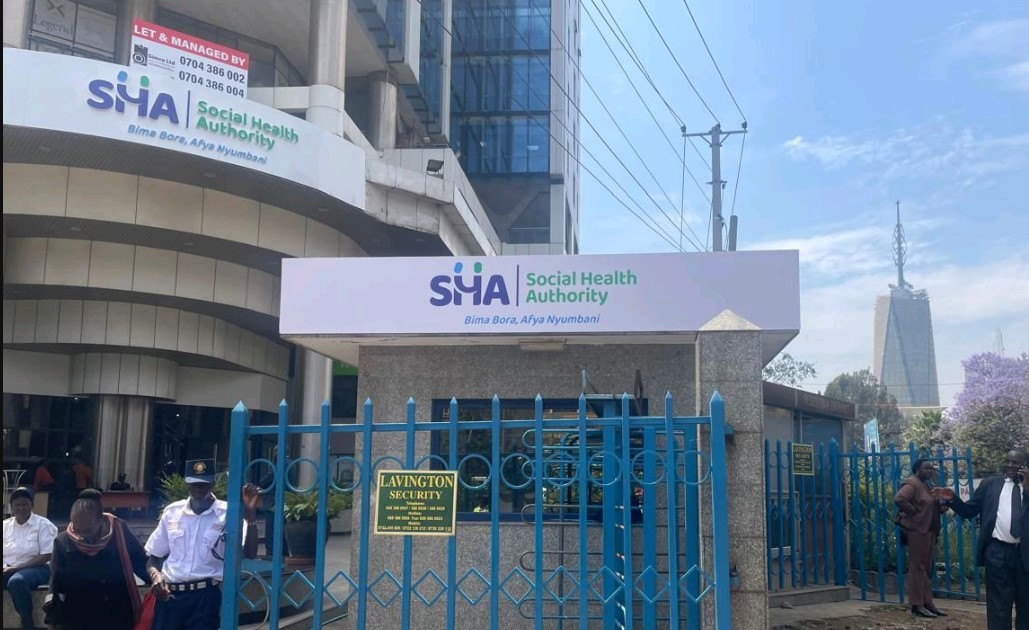OPINION: New Social Health Insurance Fund presents a mixed bag of reforms

By Mohammed Doyo |
The mandatory registration requirement for all Kenyans is also a positive move towards inclusivity, ensuring that no one is left behind in access to healthcare services, regardless of their socioeconomic status.
The introduction of the Social Health Insurance Fund (SHIF) in Kenya has brought about significant changes to the country's healthcare system.
On the surface, the SHIF appears to be a step in the right direction, aiming to provide universal access to healthcare for all Kenyans.
Keep reading
- Private hospitals to accept cash-only payments for medical services over Sh29bn govt debt
- State clarifies SHA benefits, tariffs for critical care services
- SHA technical hitches hindering hospital operations, patient services, says Rupha report
- SHA disburses over Sh1.36 billion for healthcare claims for October
The mandatory registration requirement for all Kenyans is also a positive move towards inclusivity, ensuring that no one is left behind in access to healthcare services, regardless of their socioeconomic status. This is a commendable goal, as it aligns with the fundamental human right to health outlined in the Kenyan Constitution.
By establishing three distinct funds — the Primary Health Fund, the Social Health Insurance Fund, and the Emergency, Chronic, and Critical Illness Fund — the government has taken a comprehensive approach to address various healthcare needs.
The mandatory registration requirement for all Kenyan residents ensures that no one is left behind in accessing healthcare services. This inclusive approach is important for vulnerable populations, such as low-income households and individuals with disabilities, who often face barriers to accessing quality healthcare. The provision for financial assistance to needy households, as determined by a means testing instrument, demonstrates the government's commitment to equity in healthcare access.
Moreover, the SHIF contribution structure, based on a percentage of income, is a progressive approach to healthcare financing. By requiring higher contributions from those with higher incomes, the system promotes a sense of social solidarity and a shared responsibility for the health of the nation. This is a departure from the previous National Health Insurance Fund (NHIF) model which had a flat contribution rate that placed a disproportionate burden on lower-income households.
However, there are potential drawbacks to the SHIF that must be considered.
The most significant concern is the increased contribution rates for both salaried and unsalaried households. At 2.75 per cent of gross income, with a minimum contribution of Sh300 per month, the SHIF contributions are significantly higher than the previous NHIF rates. This could place a financial strain on households, particularly those in the lower-income brackets who are already struggling to make ends meet.
The fixed remittance amounts of Sh11,200 for normal deliveries and Sh32,600 for Caesarean sections may also not be sufficient to cover the full cost of maternal healthcare services, especially in private hospitals or in cases with complications. This could lead to out-of-pocket expenses for mothers and their families, undermining the goal of financial protection and universal access to healthcare.
Moreover, the restrictions on hospital stay — 48 hours for normal deliveries and 72 hours for C-sections — may not provide adequate time for recovery and medical observation for all mothers.
These limitations could lead to premature discharges, potentially compromising the health and well-being of both mothers and newborns. The requirement for mothers with complications beyond the stipulated hospital stay periods to undergo fresh vetting before accessing further services under SHIF is also concerning, as it could delay necessary medical care and place an additional burden on vulnerable mothers.
These limitations could have serious implications for maternal and newborn health outcomes, as well as exacerbate existing inequities in access to quality maternal healthcare. Women from lower-income households or those living in underserved areas may face greater barriers to comprehensive and timely maternal care under SHIF.
To address these issues, policymakers should consider reviewing and adjusting the fixed remittance amounts for deliveries, extending the hospital stay periods for both normal deliveries and C-sections, and streamlining the process for accessing further services in case of complications. Investing in strengthening the capacity and quality of maternal healthcare across the country, particularly in underserved areas, is crucial to ensure equitable access to comprehensive maternity services.
SHIF’s success will depend on the administrative capacity of the newly established Social Health Authority. Taking over the functions of the NHIF Board is a significant undertaking, and the Authority must have the necessary resources, expertise, and systems to effectively manage SHIF. Any shortcomings in the Authority's capacity could lead to delays in registration, contribution collection, and healthcare service delivery, eroding public trust in the system.
Ultimately, it will also depend on effective implementation, strong administrative capacity, and a commitment to continuous improvement based on feedback from healthcare providers, experts, and the public.
The writer is a public policy specialist and a management consultant.
Reader comments
Follow Us and Stay Connected!
We'd love for you to join our community and stay updated with our latest stories and updates. Follow us on our social media channels and be part of the conversation!
Let's stay connected and keep the dialogue going!















